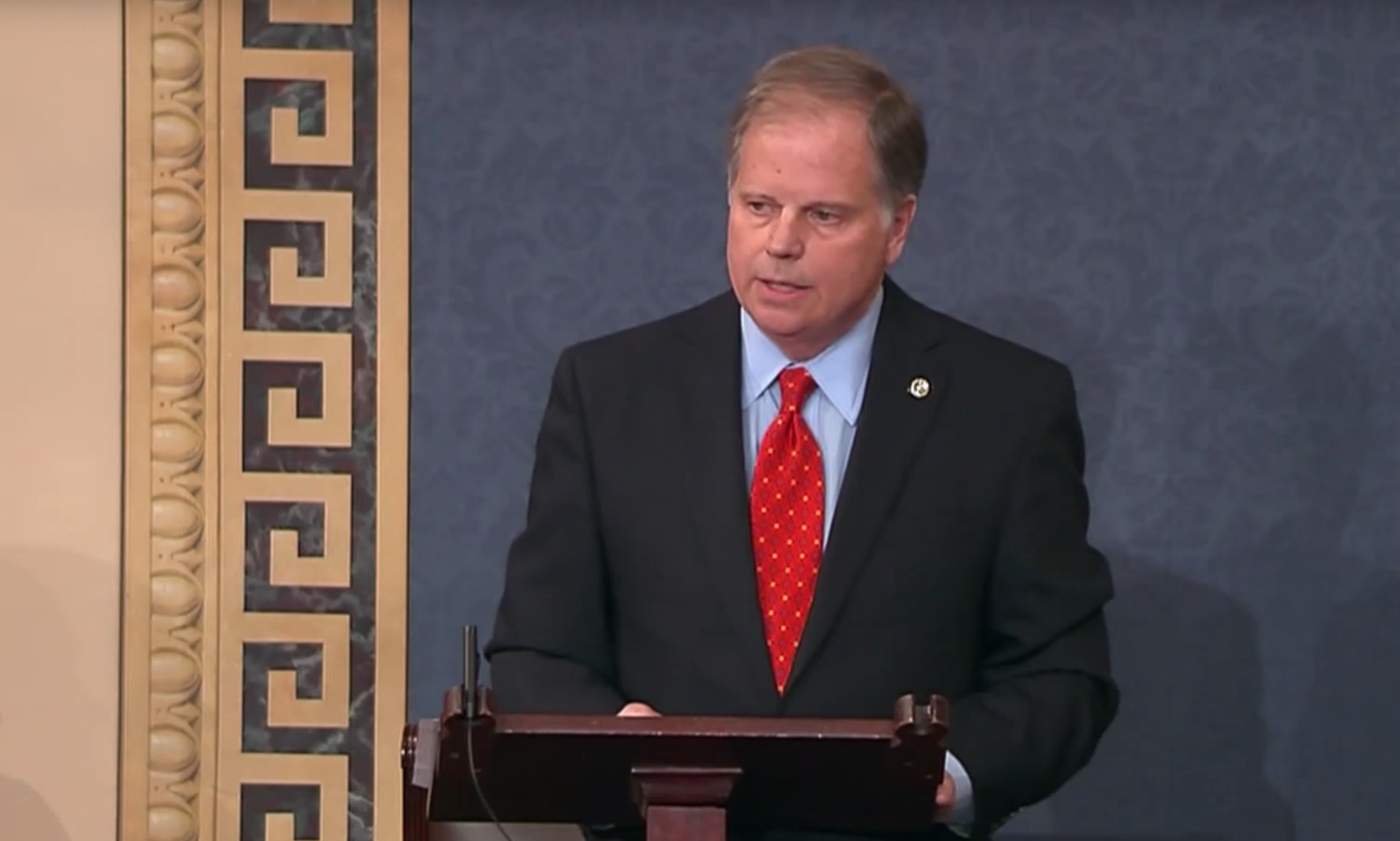A new report by Quorum Analytics named Sen. Doug Jones one of the U.S. Senate’s most bipartisan members.
The report studied bipartisan actions taken so far in the 116th Congress. It found that of all the bills Jones has cosponsored this year, 47 percent were led by a republican.
“Bipartisanship means more than simply reaching across the political aisle; it means finding common ground,” Jones said. “I have always believed that in Alabama, and in America, we have far more in common than we have that divides us.”
Jones has also led several bipartisan proposals, including the Civil Rights Cold Case Records Collection Act, Rural Health Liaison Act, Fair Access for Farmers and Ranchers Act and the Broadband Connections for Rural Opportunities Act.
Over half of his proposed bills this year have gained republican cosponsors.
“As a United States Senator, I’ve taken that approach to a number of important issues that impact our people every day – issues like health care, education, jobs, ensuring that we have the strongest possible national defense, and so many others,” Jones said. “That is reflected in the strong bipartisan record my team and I have built in the Senate. If we can set aside the divisive partisan politics, we can work together and actually get things done.”
Only two other democratic members, Sen. Krysten Sinema, D-AZ, and Sen. Joe Manchin, D-WV, had more bills cosponsored by republicans, with Sinema having 58 percent and Manchin having 51 percent.






















































